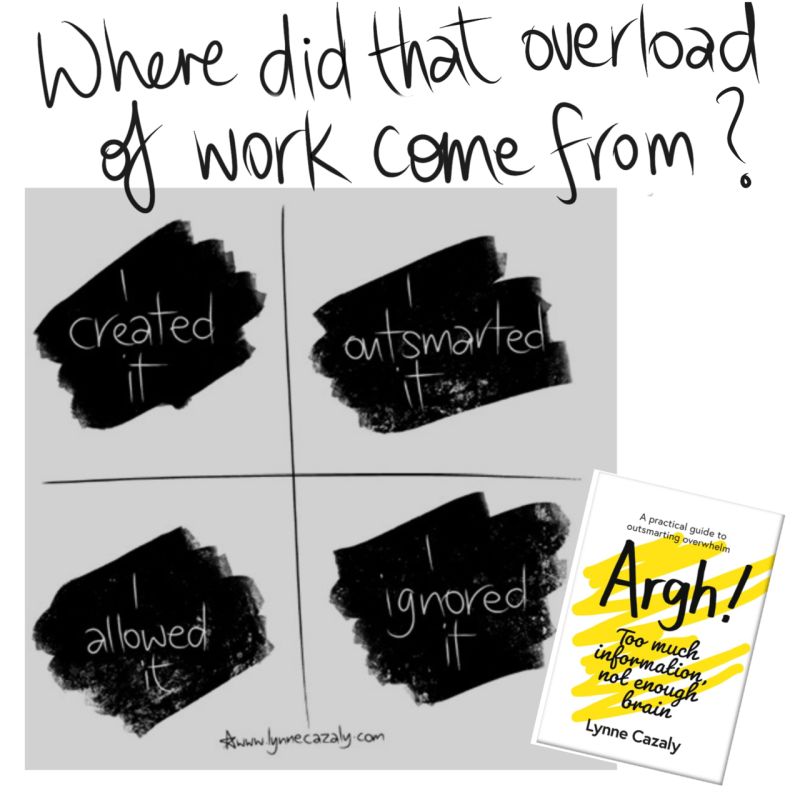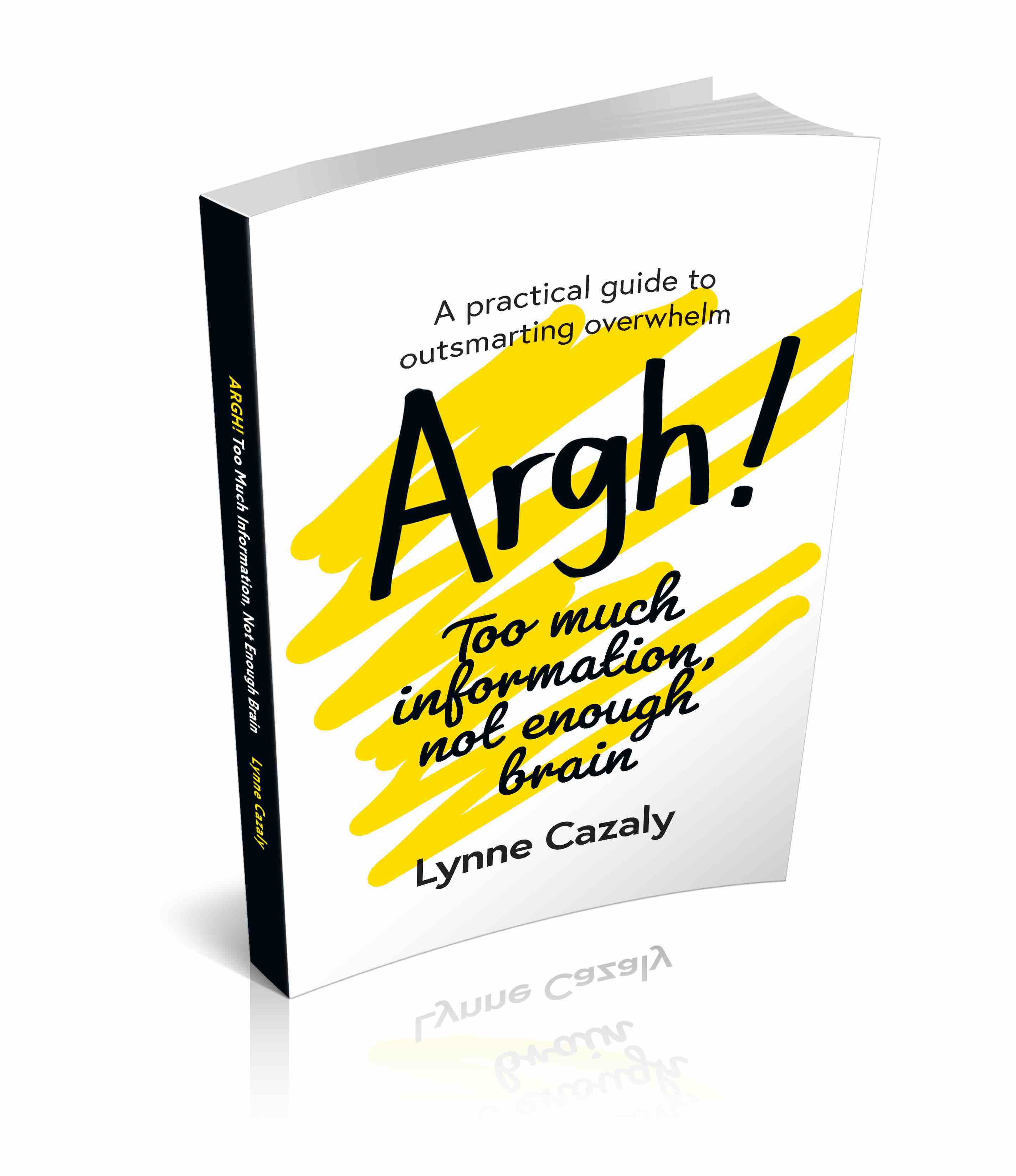Where does your work come from
 Thursday, October 7, 2021 at 1:35PM
Thursday, October 7, 2021 at 1:35PM 
How do the things on your ‘to-do’ list get there?
We can be overwhelmed by the sheer quantity of tasks and things we have to do.
A reality is that we may not ever get to the end of our task list.
So how do you become overloaded?
When you see things starting to pile up, stay alert to the overload of work.
Consider if:
- I created the work
- I allowed it to be added to my list of responsibilities (and yes, sometimes that’s the nature of work, we have to do things as we are directed or expected)
- I ignored it and then more and more work was added to my list
or
- I outsmarted it...I stayed alert to what was happening. Consider whether or not a task or project is really what you need and want to do, whether it belongs with you.
We may not be overloaded and overwhelmed with work everyday. But the next time you feel the pressure of ‘there’s too much to do’, consider where it’s coming from.


















